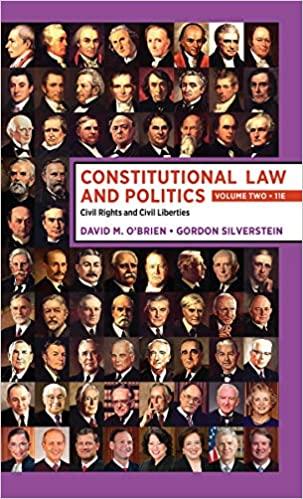Question
B and C are an unmarried couple in a long-term romantic relationship. B buys a house and C moves in with him. B has an
B and C are an unmarried couple in a long-term romantic relationship. B buys a house and C moves in with him. B has an attorney draft a revocable trust naming B as trustee and the lawyer as successor trustee. The trust creates a life estate in the house to the benefit of C, with the remainder of the trust going to E and F, B's children from a prior marriage. The trust instrument may be amended or revoked "by a duly executed document delivered to Trustee." B executed the trust and also executed a will leaving all of the property in the trust to the trustee. None of this property is presently in the trust.
B decided some years later to leave the house to C outright and asked the attorney to change the trust. The attorney prepared a new page for the trust instrument that changed the life interest to C into an outright gift, substituted the page in the trust, and stored it in his (the attorney's) office. B has a copy of the new page.
B added C's name to a bank account as a joint tenant with right of survivorship.
Three years later, B died. E and F challenge the alleged outright gift of the house; they also argue that C is not entitled to the bank account because it is a convenience account.
Discuss whether the trust agreement is enforceable and whether the bank account was held in joint tenancy with right of survivorship.
Step by Step Solution
There are 3 Steps involved in it
Step: 1

Get Instant Access to Expert-Tailored Solutions
See step-by-step solutions with expert insights and AI powered tools for academic success
Step: 2

Step: 3

Ace Your Homework with AI
Get the answers you need in no time with our AI-driven, step-by-step assistance
Get Started


